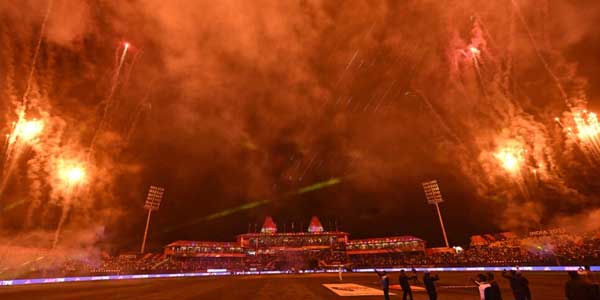The Board of Control for Cricket in India (BCCI) announced a ban on fireworks at Cricket World Cup matches in Mumbai and New Delhi due to hazardous pollution levels.
India are set to face Sri Lanka at Mumbai's Wankhede Stadium, with a victory potentially extending their unbeaten streak to seven matches and securing a semi-final berth.
Air quality concerns took centre stage in Mumbai, prompting the BCCI's action. Secretary Jay Shah emphasised the board's sensitivity to environmental issues and stated that there will be no fireworks display in Mumbai to avoid exacerbating pollution levels.
Shah noted, "The BCCI acknowledges the urgent concern surrounding air quality in both Mumbai and New Delhi. While we strive to host the World Cup in a manner befitting the celebration of cricket, we remain steadfast in our commitment to prioritising the health and safety of all our stakeholders."
India's National Air Quality Index rated the air quality in Mumbai as "poor," with potential health impacts such as breathing discomfort from prolonged exposure. The concentration of pollutants in Mumbai exceeded recommended limits by four times, as advised by the World Health Organisation.
India's captain, Rohit Sharma, acknowledged the less-than-ideal situation, expressing concern for future generations' well-being. He stressed the importance of addressing environmental issues for the sake of children and future generations.
Mumbai is also slated to host another league game on November 7, featuring Afghanistan and Australia, before the first semi-final on November 15. Meanwhile, air quality in New Delhi fluctuated between "poor" and "very poor" at different times of the day, with the city awaiting its last World Cup match between Sri Lanka and Bangladesh on Monday.
The issue of pollution in Delhi was previously highlighted during a Test match in December 2017 when nine Sri Lankan players wore masks due to severe pollution, and Indian bowler Mohammed Shami even vomited on the pitch.



























